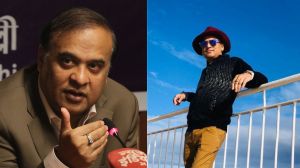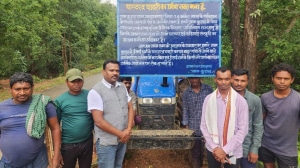West Africa under India Inc’s radar for investment opportunities
Mangoes stand piled high in red, orange and green stacks, a traditional sight on the roadsides of Senegal during the harvest season.

Mangoes stand piled high in red, orange and green stacks, a traditional sight on the roadsides of Senegal during the harvest season. Few here know the ‘king of fruits’ came originally from India. But most are aware of a more recent import, the Tata bus, fast becoming as common as mangoes on the streets of the capital Dakar and a symbol of India’s growing presence in West Africa.
“Increasingly we’re focusing on West Africa and southern Africa and the SADC (Southern African Development Community) countries,” Parbati Sen Vyas, India’s ambassador to Senegal and four neighbouring countries, said in an interview. “We are looking at these countries because they are rich in resources, but there is a very significant political role also.”
Indian traders and businessmen have lived and worked for generations in eastern and southern Africa. But links with the continent have taken on what Vyas called “a new dimension, a new vitality” in recent years as firms have broken traditional geographical and industrial boundaries.
India’s role mirrors that of neighbouring Asian giant China, which has launched a diplomatic and trading offensive to win friends on the resource-rich continent and secure supplies of oil and other minerals to fuel its fast-expanding economy. “We don’t compete with China — China has more resources. In a more modest way we have a foothold here in these West African countries,” Vyas said.
A glance around Dakar shows that presence is expanding. Tata buses from a local assembly plant are gradually replacing the thousands of brightly painted but decrepit minibuses, and Indian construction firms are moving in. Industries Chimiques du Senegal (ICS), the country’s biggest industrial complex, is a joint venture involving Senegal and India and India’s IFFCO farmers’ fertiliser cooperative. It exports much of its phosphate output to India.
India’s biggest tractor maker, Mahindra & Mahindra Ltd, recently announced plans for a plant in neighbouring Gambia, saying Africa was important to its global plans. And in Ivory Coast, India plans to invest $1 billion over five years in oil exploration and mining, despite the country being cut in two since a brief civil war erupted in 2002.
“When the opportunity is there, Indian companies can do as well as or better than any other country,” said Amarendra Khatua, Indian ambassador to Ivory Coast. The primary focus is economic: to secure supplies of raw materials and markets for Indian exports. But there is a growing diplomatic role as globalisation and UN reform make winning friends — even poor ones — ever more important.
Big investments get top-level backing, like planned multibillion dollar oil investments in Nigeria, which is India’s top source of oil and has guaranteed long-term supplies.
Salt-to-software conglomerate Tata is spearheading expansion on the continent from South Africa, which promotes links with India and Brazil via a three-way alliance. Tata trucks are the second most popular medium commercial vehicles in South Africa and a Tata subsidiary is buying into a second phone network. Meanwhile generic pharmaceutical exports to Africa are soaring, and have helped slash the price of AIDS treatments.
New Delhi is giving Indian firms a shoo-in to African markets by pouring funds into aid projects like its TEAM-9 initiative, which provides $500 million for technology, power, health and food security projects in a group of West African countries — so long as Indian contractors are used.



- 01
- 02
- 03
- 04
- 05




























